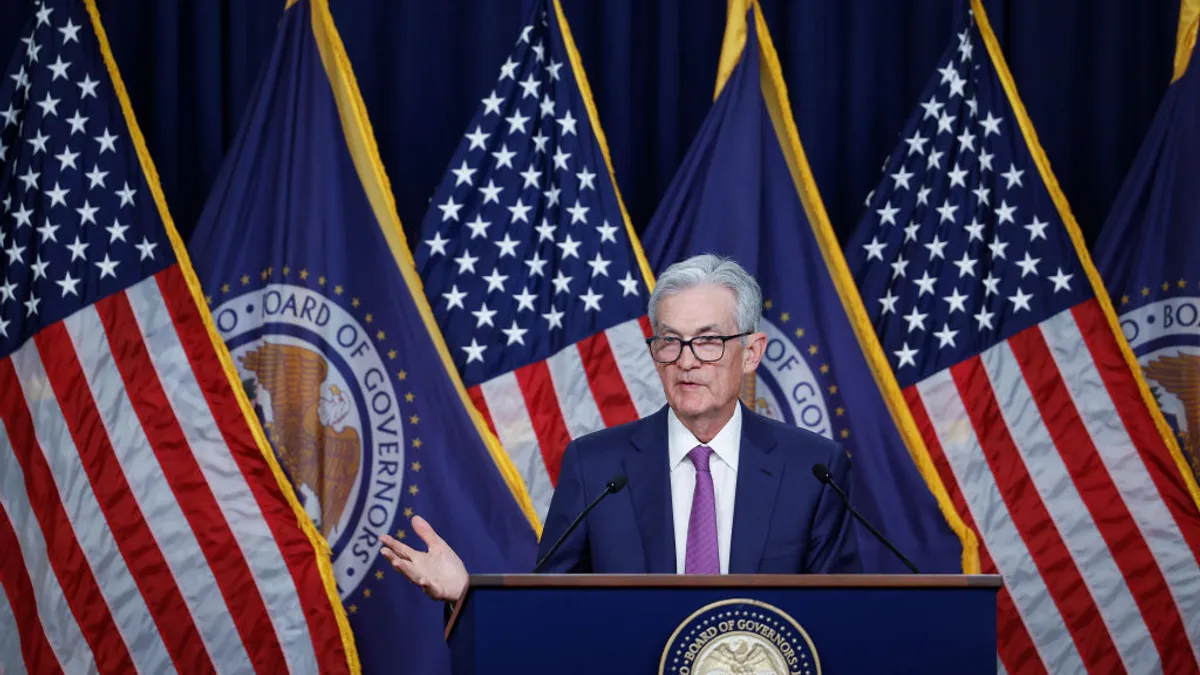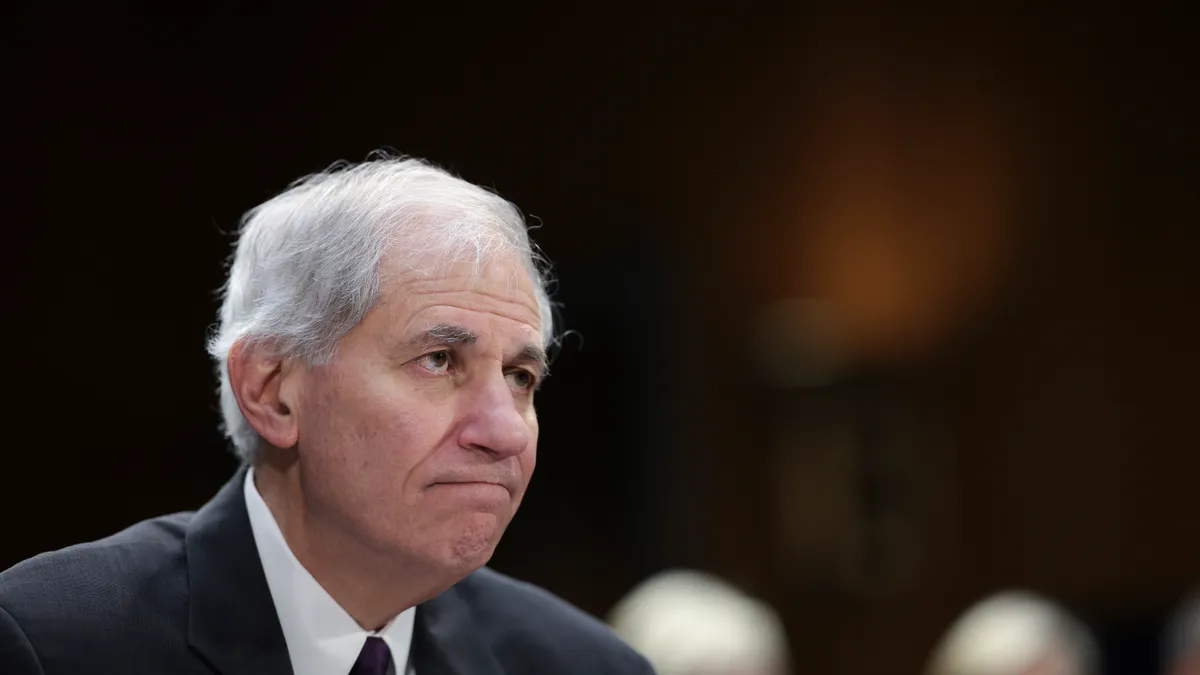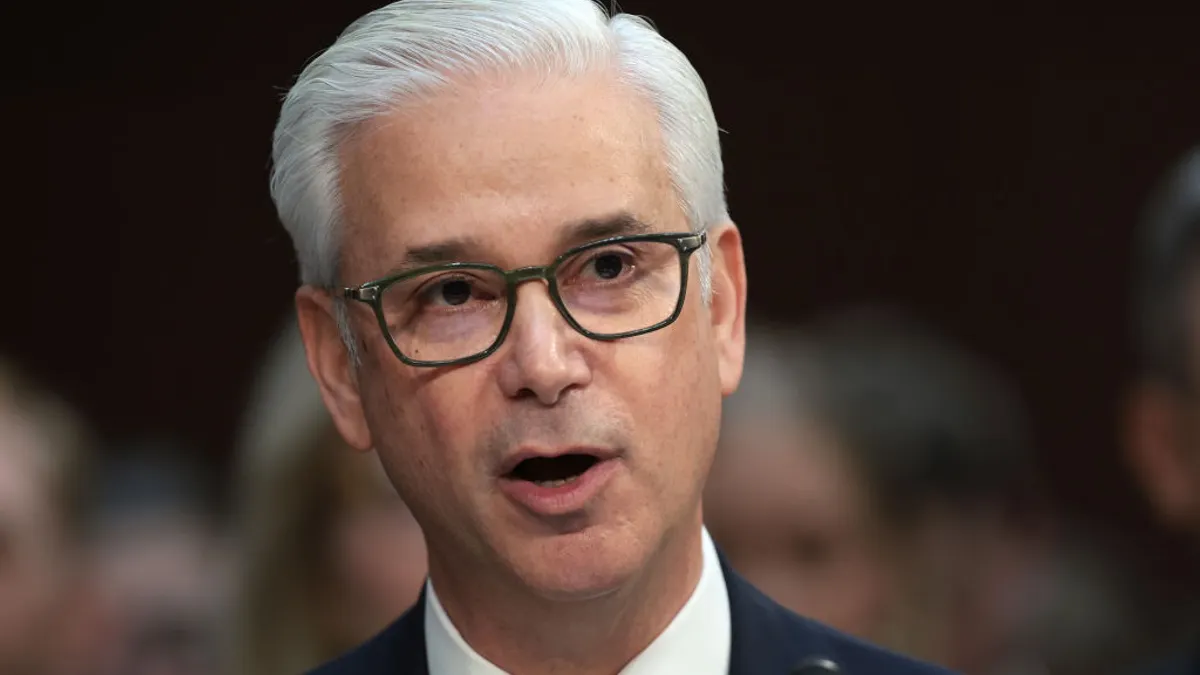Consumer Financial Protection Bureau Acting Director Russ Vought wants to take “guidance” down a peg.
In a memo Friday, Vought ordered the heads of eight offices within the bureau, including enforcement and supervision, to review by April 25 any guidance documents the agency has issued, with the aim of rooting out instances when guidance was used as a substitute for the more formal regulation process.
“The use of guidance to regulate is unlawful and deprives the public of fair notice of what conduct is prohibited," Vought wrote in the memo seen by Fox Business and American Banker. "The Bureau will no longer engage in this practice. Effective immediately, Bureau components may not issue guidance documents that purport to create rights or obligations binding on persons or entities outside the Bureau."
Vought laid out several parameters into which CFPB guidance should fit, including that guidance should state in a disclaimer that it is not legally binding. Guidance, he said, should refer to recommended practices, and the bureau should make clear that noncompliance limited to the guidance itself, will not trigger any enforcement action.
Further, Vought wrote, guidance documents "should not use mandatory language, such as 'shall,' 'must,' 'required,' or 'requirement' to direct parties outside the federal government to refrain from taking action.”
Vought drew an exception for guidance that links back to specific regulations, statutes and judicial precedents the guidance is meant to clarify.
In his memo, Vought directed the eight office chiefs to flag previous CFPB guidance that matches the principles he outlined – adding that anything not “flagged for retention will be promptly rescinded, after review by [the] Bureau's leadership.”
Vought noted that the "overwhelming majority of the Bureau's existing guidance appears to not clear" the parameters he laid out Friday.
“It is not enough to simply stop regulation through guidance prospectively,” Vought wrote, adding that the CFPB "must rescind all 'guidance' that has unlawfully regulated private parties in the past.”
The eight office chiefs, in their flags, must explain to the CFPB’s chief legal officer, Mark Paoletta, and a deputy, Dan Shapiro, why the guidance should not be withdrawn, Vought wrote.
Friday’s memo comes two weeks after 14 Republican members of the House Financial Services Committee wrote Vought, noting that the CFPB had “issued countless guidance documents, circulars, interpretive rules and advisory opinions that placed new burdens on financial institutions without following the rulemaking procedures of the [Administrative Procedure Act].”
“The previous Administration’s reliance on these types of informal instructions only created further confusion for financial institutions that were never given meaningful opportunities to share feedback,” the lawmakers wrote. “This practice is antithetical to the notion of transparent and collaborative rulemaking that serves as the foundation of the APA.”
That letter is dated March 28 – incidentally, the day a district court judge granted a preliminary injunction halting the CFPB from firing employees en masse and walking back Vought’s Feb. 10 stop-work order.
“Failing to provide American financial institutions an opportunity to voice their concerns with new regulatory burdens is fundamentally unfair and leads to the wild swings in regulations that defined the previous Administration,” the lawmakers wrote to Vought. “All guidance, circulars, interpretive rules, and advisory opinions that were not issued pursuant to APA notice-and-comment rulemaking should be rescinded in their entirety.”
Vought had choice words Friday for the CFPB under its Biden-era director, Rohit Chopra.
"For too long, this agency has engaged in weaponized practices that treat legal restrictions on its authorities as barriers to be overcome, rather than laws that we are oath-bound to respect," Vought wrote. "This weaponization occurs with particular force in context of the Bureau's use of sub-regulatory 'guidance.'"
Vought, in his memo, listed more than 100 policy statements, interpretive rules, advisory opinions and other guidance that will be subject to the review and could be rescinded by the agency.
In a related internal memo, Vought added that "guidance materials are strongly disfavored and are improper where they impose rights or obligations on private parties outside of the notice-and-comment process prescribed by the Administrative Procedure Act."






















